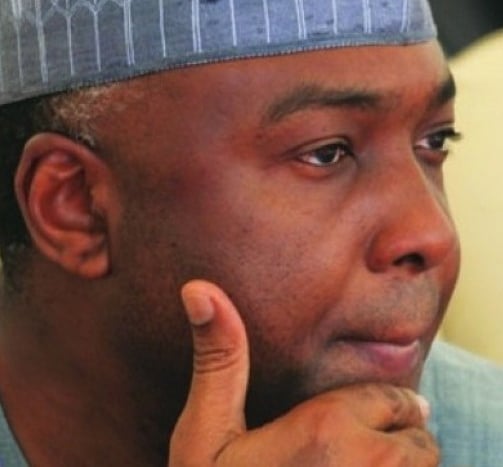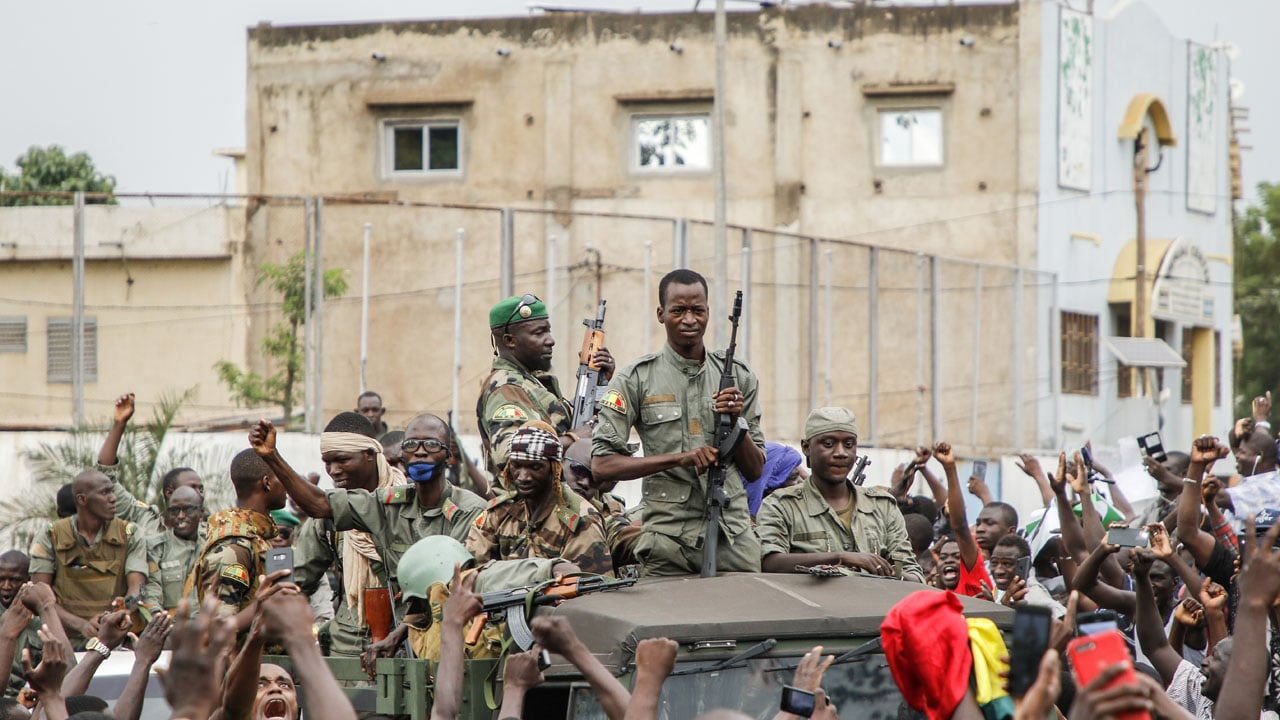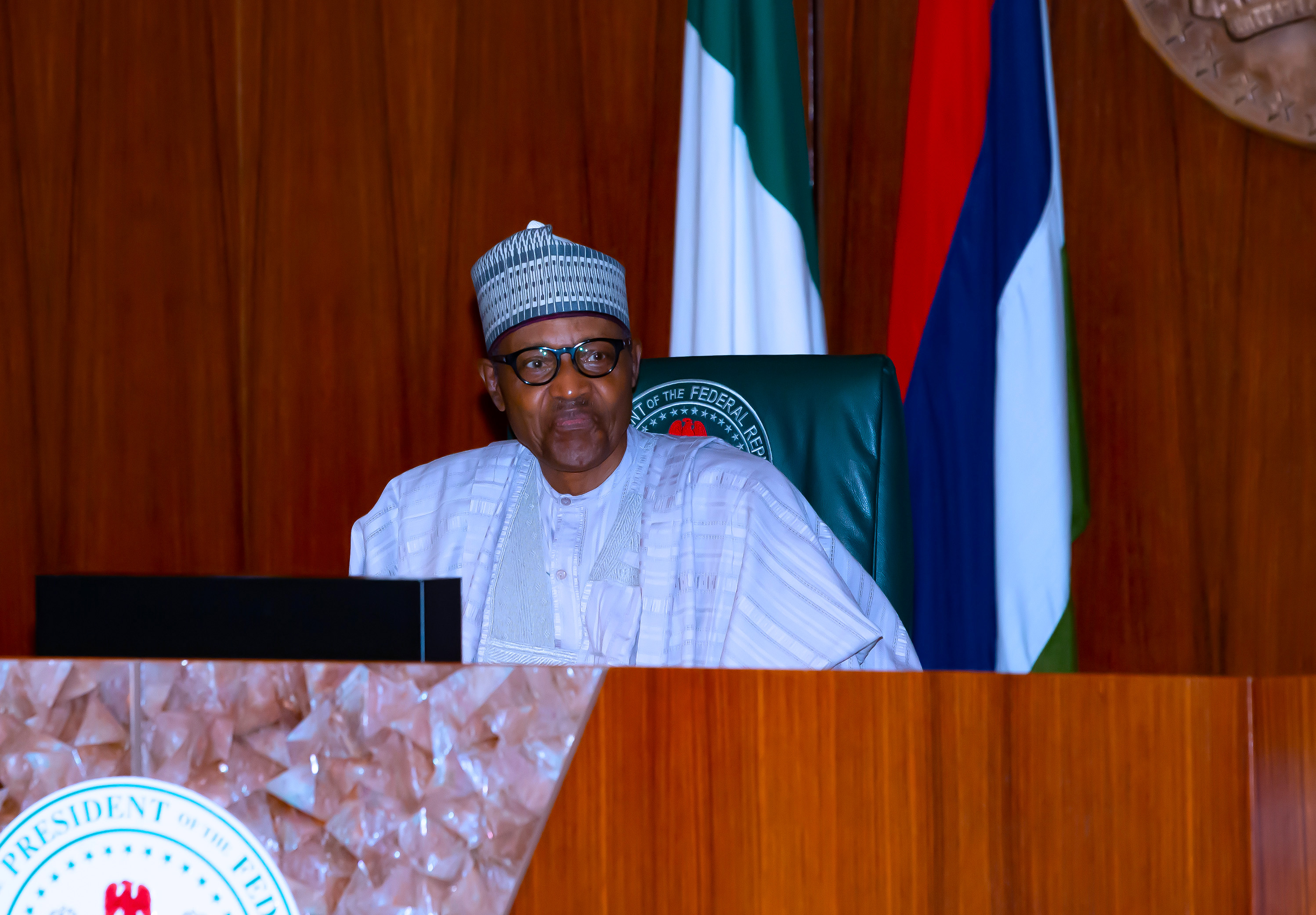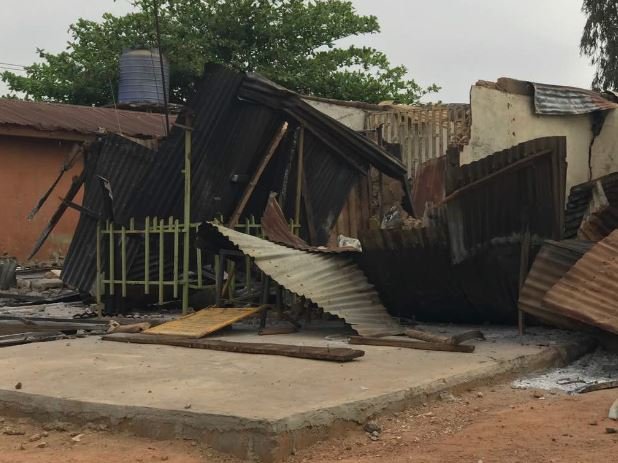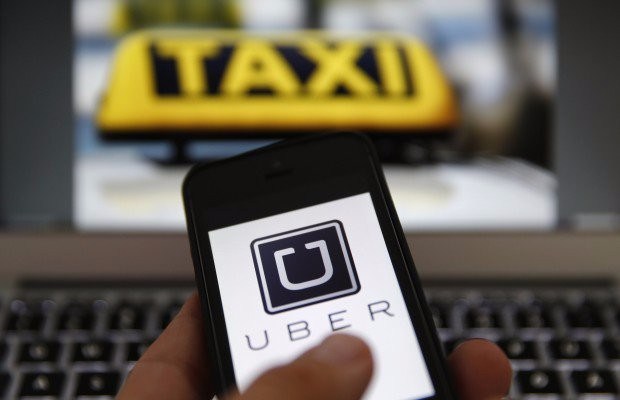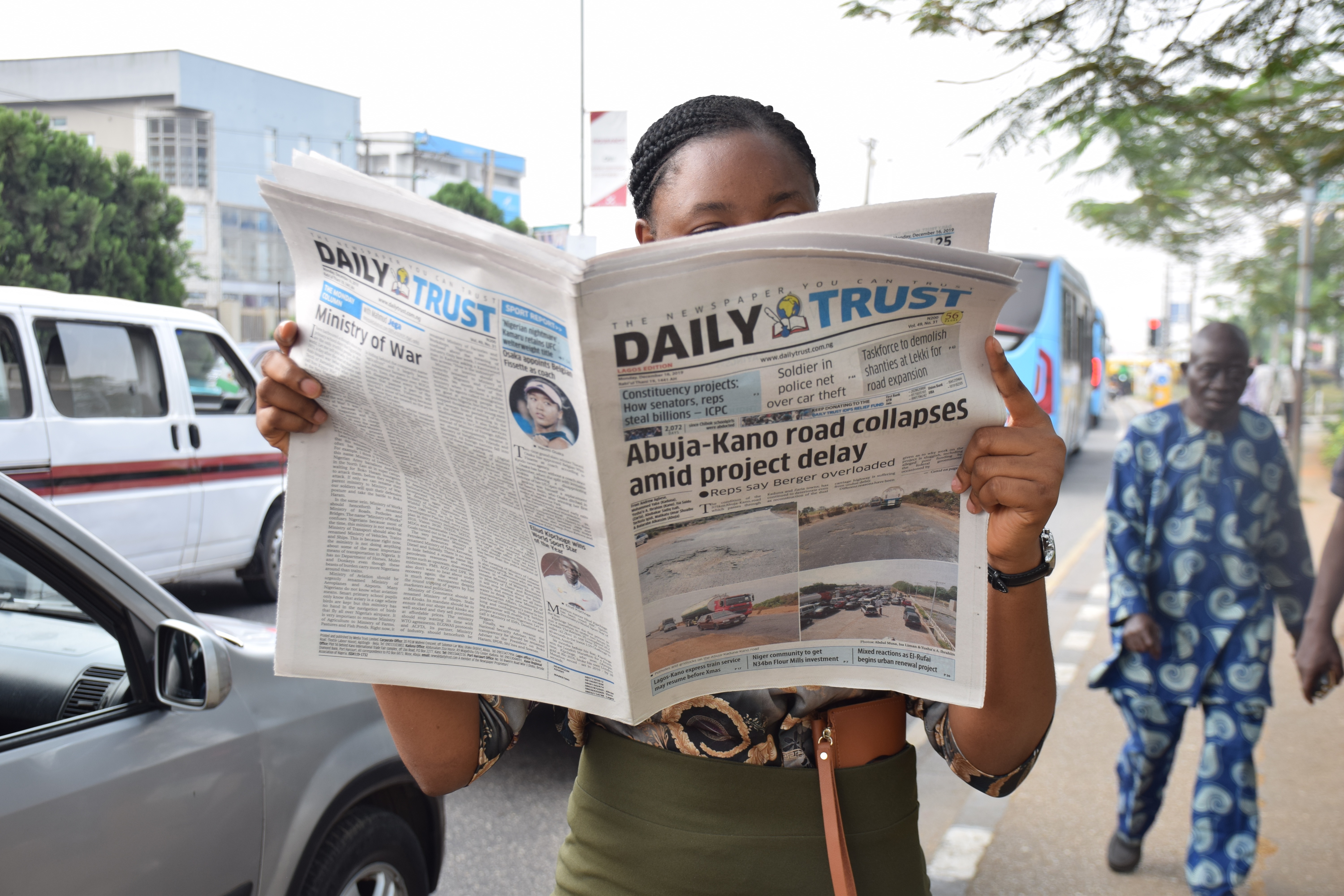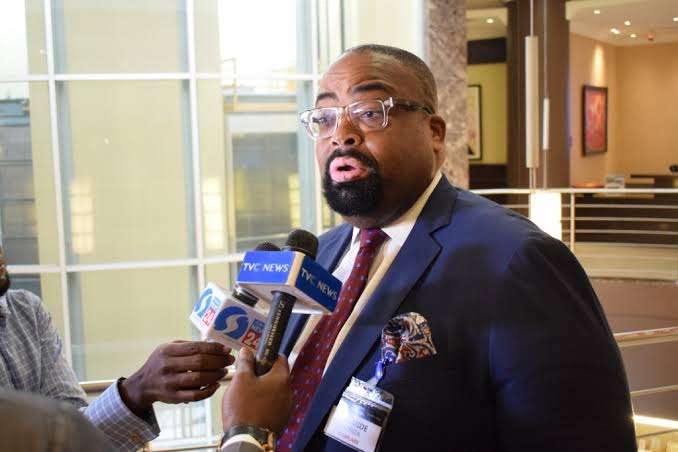The events in Mali, one of our neighbours in the West African sub-region should be of great concern to all Nigerians. In that country, democracy suffered a huge setback when on August 18, the military seized power and truncated civil rule. Since then, we have seen frenetic efforts by leaders of the Economic Community of West African States (ECOWAS) led by President Muhammadu Buhari to restore normalcy in the landlocked country reputed to have the eighth largest land mass in Africa with her 1,240,000 square kilometers occupied by over 19. 1 million people, 67 percent of whom are said to be youths under age 25.
The West African leaders intervening in Mali are working to achieve “immediate return to constitutional order”. Meanwhile, the military which first talked of returning to the barracks “within a reasonable time”, later proposed a three year transition programme and has been pressured into now talking of the ‘decision on the future of the country being left to citizens’.
The situation in Mali is a dangerous omen, coming after Africans have chosen democracy as the best form of governance. This is a resolve that must be defended by all – citizens, governments and their leaders. We must all agree, not just by words but also by action, that the only way to remove bad, non-performing governments on the continent should be through credible elections and constitutional means. There should be no other alternative to people’s will, freely expressed through their votes which must be made to count at all times.
That is why our leaders who are seeking solutions to the problem in Mali, need to sit back and ask themselves certain pertinent questions. These include: What led to the present situation in Mali? Why did the people go out on the streets protesting against a democratically elected government? Why was it that when the military took over, there were celebrations on the streets?Seventy-five year old President Ibrahim Boubacar Keita came into power in 2013 with promises to fight corruption, defeat the insurgency in parts of the country and eradicate poverty.
Advertisement
Keita won re-election in 2018 in polls which were described in many quarters as far from being credible. Also, allegation of corruption, persistent economic woes and worsening insecurity in large parts of the country continued to dog the government. Yet, Malians still tagged along with great hope of a better future. The story only changed earlier this year, when the Keita government held local government elections, which was widely believed to have been won by the opposition party. However, the process was massively rigged in favour of the President’s Party. This resulted in the protests on the streets.
I guess for the people of Mali, that was the tipping point on the precipice in which the country dangerously dangled for years. The citizens must have been pushed to see no other option. The people believe in democracy. They were told it would bring good governance. With their experience, all these have become vain promises. Also, they were told that while practicing democracy, elections will empower and enable them to kick out governments that fail to deliver on its pre-election promise.
The results of the local government elections rubbished their hope. And that explained why they commenced a ceaseless protest. The military also claimed that in the overthrow of the Keita government, they simply “completed the work” of the protesters. The failed government, and more importantly, its penchant for rigged polls made the people to lose faith in the democratic process. Election rigging has resulted in the resort to other means, though illegal, to get rid of an unpopular government.
Advertisement
This explained why when the young military guys forcefully and undemocratically took over power, there was dancing on the streets. I am sure majority of Malians did not know or never heard of Col. Ismael Wague, the youthful leader of the military junta. Neither can they vouch for his capacity before August 18. However, with the take over, he offered a solution to their problem. They wanted a change of government and since Keita and his cohorts foreclosed the option of getting that change through democratic means, they were forced to rejoice and embrace over an illegal means of changing government. The rigging and manipulations that subverted the will of the people made the undesirable become attractive.
As we discuss Mali, we must be watching events in nearby Cote d’Ivoire and Guinea. In Guinea, the current president, 82-year old Alpha Conde is seeking a third term, following a constitutional amendment forged through a manipulated referendum in March. The referendum was not only boycotted by the opposition, but the result was generally described as unpopular. Since then, there has been series of protests on the streets, with scores of people dead. The government has disregarded popular opinion and is pushing ahead with elections in October.
A similar thing is happening in Côte d’Ivoire. At 78, President Alassane Quattara who announced an earlier plan to step aside after two terms in office, has done a u-turn, following the death of his party’s presidential candidate. He has announced his intention to run for a third term. Just like in Guinea, the announcement ignited a wide-spread opposition. Protests on the streets have left many people dead and others wounded. Here too, elections are due in October.
So, apart from Mali, constitutional crises loom in Guinea and Côte d’Ivoire. It is my fervent belief that other heads of governments in the ECOWAS sub-region have cogent and tangible reasons not to wait till after the elections in October before beginning to address the likely fall-out. Clearly the tell-tale signs are there that the plots by the two leaders to remain in power at all cost is not popular.
Advertisement
With that background, it is almost certain that the scheduled elections in October will be fraught with irregularities, disagreements and desperation. The polls will lack credibility and will further endanger the peace of the nations. Thus, a fertile ground for riots, protests and desperate call by the people for military intervention could not be ruled out.
ECOWAS leaders must act decisively now. They need to intensify diplomatic efforts to either discourage the incumbent presidents of Guinea and Côte d’Ivoire seeking a third term or, even more importantly, ensure that the electoral process in October is free, fair, peaceful and very credible. The ECOWAS leaders must send a clear message that any leader that emerges from a flawed election will not be recognised by the community and such country will face possible sanctions.
As Nigeria provides leadership in Africa, we must ensure that both ourselves and other countries learn lessons from the Mali experience. It is strongly believed that the coup in Mali could have been averted if President Keita had cancelled the fraudulent local government elections and conduct another one that will be reflective of the true wishes of the people. We must ensure that the ballot box remains the outlet for ventilating legitimate grievances and change of government. ECOWAS leaders must realise that it is a serious problem when the people are unable to freely elect those who govern them. The rigging of the electoral process is an indirect invitation to soldiers who usually make a false claim of coming in to restore law and order while in real essence their intervention constitute a further disruption to the system.
In Nigeria, we have two state elections coming up in Edo and Ondo. The first one is scheduled for September 19, in Edo State. Unfortunately, we have watched with great concern the actions of some political leaders who like the ones in Mali, Guinea and Côte d’Ivoire believe their wish must prevail in Edo State. Such desperate leaders have been making incendiary statements indicative of their desire to ensure the candidate of their party win, whether the votes support the choice or not.
Advertisement
There have been talks of plots aimed at illegally deploying security agents, electoral officials and hoodlums to compromise and subvert the process. This is where the spirit of ECOWAS determination that its national and sub-national governments must be truly democratic in nature and that their leaders must be products of a transparent electoral process, needs to be invoked.
As chair of ECOWAS, it is imperative for President Buhari to ensure that from now on, all elections conducted under his watch must be fully democratic, free, fair, peaceful, credible and the results must reflect the true wishes of the people. President Buhari must use the Edo and Ondo elections to demonstrate ECOWAS’ commitment to credible electoral process. The President must put his feet down and ensure that the security agencies will, and must, not be misused to influence the results of the elections in Edo and Ondo States. Also, the electoral commission should be made to be truly immune from manipulations by individuals, no matter how highly placed.
Advertisement
It should be noted that the loss of Edo and/or Ondo States by any of the two major parties is not going to make a huge difference to the fortunes of these parties. Neither is it worth the lives of our people, the peace of our country or the imminent threat to our democracy. We should realise that nobody knows where and when the tipping point is in our country. Africa now has a young population that is driven by the information the members are exposed to on social media and the high level of awareness it gives them.
It is obvious that the only way to stem the tide of the regrettable resurgence of military rule is if elections are free and fair. That way we prevent the youth from trooping out on the streets to protest. If they are not happy with a government, they know that the next election will provide the chance to replace that government. To the desperate and war-mongering players in Edo State and their collaborators across the country, the election is viewed as a war and they do not mind if the nation’s democracy or citizens are the casualty. These partisan warriors are prepared to go to any length to feed their selfish and egregiously large ego.
Advertisement
Those of us who are politicians must be prepared to play by the rules. This mentality of electoral victory at all cost must stop. Let me quickly point out that I am eminently qualified to pontificate on this, as I can use myself as an example. I went into elections in 2019 in Kwara State and both our party, the Peoples Democratic Party (PDP), and myself lost the elections. We had our reservations on the credibility of the entire electoral process. We had good evidence of the illegal deployment of state forces and other undemocratic means to achieve the results declared by the electoral body.
The whole country witnessed the level of desperation displayed by those who could not tolerate our guts to turn the election results against us. The utterances of the former chairman of the All Progressives Congress (APC), Adams Oshiomhole, who continuously boasted how his number one priority and objective was to win Kwara State by whatever means necessary was well documented.
Advertisement
After the results of the 2019 elections was announced, I sent out messages to my followers, despite their anger and quest to express their grievances, that they should accept the results and maintain peace. I then congratulated the winners and urged our people to support the newly elected officials. To further demonstrate good faith and gracefulness in defeat, I refuse to challenge the process at the tribunal.
Though I appealed to our gubernatorial candidate, Rt. Hon. Razak Atunwa, to follow suit, he noted that he had already initiated a process at the Tribunal. However, we agreed that if for any reason he lost at the tribunal he should not take the matter beyond that level. Thus, he jettisoned his right of appeal at the Court of Appeal and the Supreme Court. All these concessions were made in spite of the strong evidence that the winner lack the educational requirement for the job. The issue we saw at the time was bigger than the winner. Our interest was to give democracy and peace a chance.
With this experience, I believe one is in a good position to write about the need for political actors to sometimes suppress the desire for power and take side with the survival of the system. When I argue that politicians should learn to accept election results and demonstrate patriotism even in the face of naked provocation, it is based on my experience. The lives of our people, the stability of our democracy and the peace of the society are more important than our personal interest or the inflated egos of the leaders.
Mali has shown to us the need to dangers that we risk when when we fail to protect the sanctity of the electoral process. It is for this reason that we need to use the elections in Edo and Ondo States to display our commitment to the growth of democracy. All politicians must commit to strengthening our electoral process, give confidence to the people that truly, elections still provide the best process by which we source leaders or kick out those we do not want. Four years is never too long a time to wait for another attempt.
If we want democracy to survive, the people must always believe their vote will count and that their government will always ensure that this is so. Every action which undermines democracy and its institutions constitute threat to sustainability of representative government. The guarantee that the military will remain in the barracks and people will not dance on the streets when they hear martial music is for those who are in charge of the conduct and supervision of elections to ensure the polls are credible by all standards.
In the midst of the challenges of the Covid-19 pandemic and its attendant socio-economic crises across the world and particularly its harsh effect on the African continent, our people remain more vulnerable. They are therefore more prone to flaring up and trooping onto the streets at any slightest opportunity. The political class should refrain from igniting an already combustible atmosphere through fraudulent electoral process.
It is clear that one of the legacies President Buhari can bestow on the country, West Africa and the entire continent is to leave behind a country that has imbibed a culture of credible and transparent electoral process. The talk in other parts of the world is whether West Africa is about to suffer a relapse of military rule. The trend must be nipped in the bud and President Buhari has a great opportunity to make it his enduring gift to future generations of not only Nigerians but the whole of Africa.
Good enough, this President who is Chairman of ECOWAS, has the luck of a Chief of Staff who is an experienced and knowledgeable diplomat. In Prof. Ibrahim Agboola Gambari, President Buhari has an adviser who perfectly understands the larger implication and danger of the events unfolding in the region, particularly as it concerns the gradual erosion of democracy.
As a former United Nations Under Secretary General and Special Adviser on Africa to the Secretary General, Prof. Gambari knows that the world is looking forward to the ECOWAS chairman to stem the growing trend of undemocratic tendencies among leaders in the region who freely and frequently subvert the will of the people.
As we strive to provide direction to Africa on the need to support democracy, we must ensure the elections in Edo and Ondo States are not rigged. If local government elections caused the crisis in Mali, who knows what can be the tipping point in Nigeria. We should avoid any scenario that compels people to take to the streets because they believe they have been robbed of their mandate at the polling stations.
Saraki was president of the senate (2015 – 2019) and currently chairman, The African Politeia Institute (TAPI)
Views expressed by contributors are strictly personal and not of TheCable.
Add a comment
